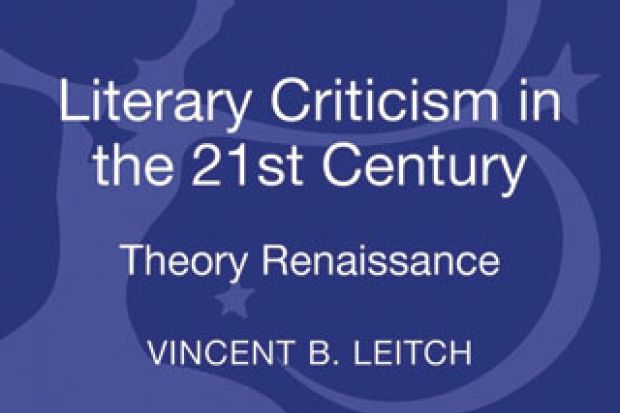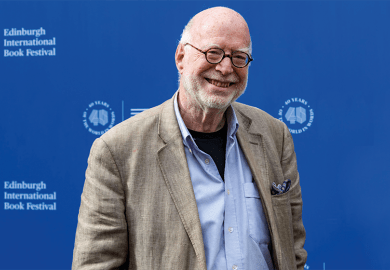Several decades ago, a thing called theory began to seep its way into English departments. It was derived largely from contemporary French philosophy, and it fuelled a long-term campaign against that battered old instrument known as the canon, the unchanging books on the eternal reading list. Theory led to a panoply of new modes of critical thinking, from feminism to queer theory to postcolonial studies, many of them now as embedded as the canon once seemed. But traditional categories have also resurfaced or survived. Academic jobs in literature are generally advertised according to historical periods, just as they used to be before the theory revolution.
This (oversimplified) story is one whose American counterpart is told by Vincent Leitch in more detail, along with other nuanced accounts of how theory has, as it were, faded into the foreground. Theory is part of the critical air that every literature scholar breathes, and it has also permeated far beyond its first disciplinary home, as inter-subjects of all kinds proliferate. Although nothing new has come along to displace it, at the same time the name “theory” is readily given to new kinds of critical thinking that, in the new age of globalisation, are being applied to a wide range of transnational social and economic issues.
This is part of what Leitch means when speaking of a theory renaissance. But he is equally interested in a quite different “second life” phenomenon, which is the way that the dominant French thinkers of the initial moment of theory (Roland Barthes, Jacques Derrida, Michel Foucault, Jacques Lacan) have become, posthumously, objects of scholarly study via biographies and collected editions of published and previously unpublished works. In Derrida’s case, for instance, a project is under way to edit, translate and publish (in both French and English) more than 40 years’ worth of course lectures.
Another development that fascinates Leitch is theory’s ambiguous adaptability in the context of what he calls the corporate university. On the one hand, theoretical modes of thinking have been brought to bear in critiques of the deterioration of state support for higher education, particularly in the US. On the other hand, theory has turned out to be a popular postmodern phenomenon in its own right, always coming up with new niche fields of research and teaching, just as the logic of commodity capitalism requires.
Leitch favours the word “fusion” as symptomatic of a cool postmodern mix – across disciplines as much as across ethnicities or sexualities or, for that matter, international cuisine. His own book blends a variety of expository modes, including a couple of chapters that reprint interviews with him in his established role as a commentator on the fortunes of literary theory. He also dabbles in something he calls, a little distractingly, “intimate” criticism (nothing to do with deodorants): from time to time he offers personal information that connects his own life to some of the more pressing social issues of recent decades. But this does not cause him to leave behind the crystal clarity that is his shining quality, and which has been put to such good use in his role as universal theory-tracker. Leitch is the principal editor of the impressive and monumental Norton Anthology of Theory and Criticism, first published in 2002 and now in its second edition; he has made a career of snapshotting and historicising theoretical trends.
The book concludes with a chapter that describes Leitch’s top six theory books of the new millennium. Not one of them, as it happens, is literary in any recognisable sense, although he does not draw attention to this. But all “tend to be passionate and critical, lucid and stylish, aimed at a general public. When they look back and historicize issues, they contribute to the future of the field.” It is a concise and inspiring description of exactly what Leitch does so well himself.
Literary Criticism in the 21st Century: Theory Renaissance
By Vincent B. Leitch
Bloomsbury, 192pp, £55.00 and £17.99
ISBN 97814725325, 5707 and 5318 (e-book)
Published 28 August 2014
Register to continue
Why register?
- Registration is free and only takes a moment
- Once registered, you can read 3 articles a month
- Sign up for our newsletter
Subscribe
Or subscribe for unlimited access to:
- Unlimited access to news, views, insights & reviews
- Digital editions
- Digital access to THE’s university and college rankings analysis
Already registered or a current subscriber? Login





